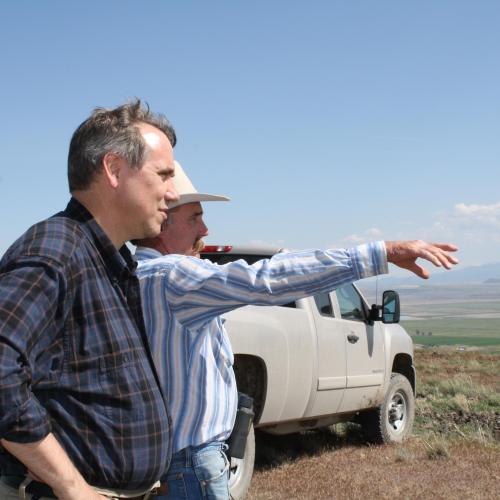In May 2010, the U.S. Department of Agriculture declared the Klamath Basin a federal disaster area due to drought conditions. The Klamath had struggled with drought in the past – limited water in 2001 led to a shutdown of the Federal irrigation system, harming farming families and tearing the community apart with protests. Subsequent water management hurt fish downstream and led to a massive die-off of salmon.
When the 2010 drought began, Jeff Merkley met with local leaders who had been working together to develop a collaborative approach to managing the limited water supply and avoid conflict in the future. They communicated that another drought could mean family farms and ranches would have to shut down, leaving crops and livestock with little or no water, and that they were deeply concerned that another drought could again divide a community that was trying to work together. Jeff vowed to help avoid another crisis.
Making good on that promise, Jeff worked with Senate leaders, Senator Wyden, and colleagues in both parties to get $10 million dollars for the Klamath Basin included in a Senate emergency spending bill. The day the bill was on the floor, Jeff cancelled his meetings and tirelessly shuttled from Republican senator to senator, addressing their concerns so they would allow the amendment to move. He even called Representative Greg Walden to come to the Senate Republican cloakroom and help Jeff persuade a Republican colleague who had once served in the House with Walden.
The funding Jeff secured was used for a land idling project so that farmers could receive incentive payments to avoid watering for the growing season. This allowed these farmers to pay their bills and avoid financial ruin while also allowing limited water supplies to be spread further.
Jeff was pleased to come to the aid of farmers and ranchers during the 2010 drought. However, he was also keenly aware that the Klamath Basin needs a long term solution to its water management challenges in order to end the decades of water wars. He pledged to community leaders – irrigation districts, ranching and farming families, tribes who depend on stream flows to support native fish populations, conservation groups and fishing organizations – that if they could come up with a solution that they could all support, he would do everything within his power to make it a reality. In 2011, he introduced a bill to implement the community’s solution and is currently partnering with Senator Wyden to pass an updated version of the legislation.

